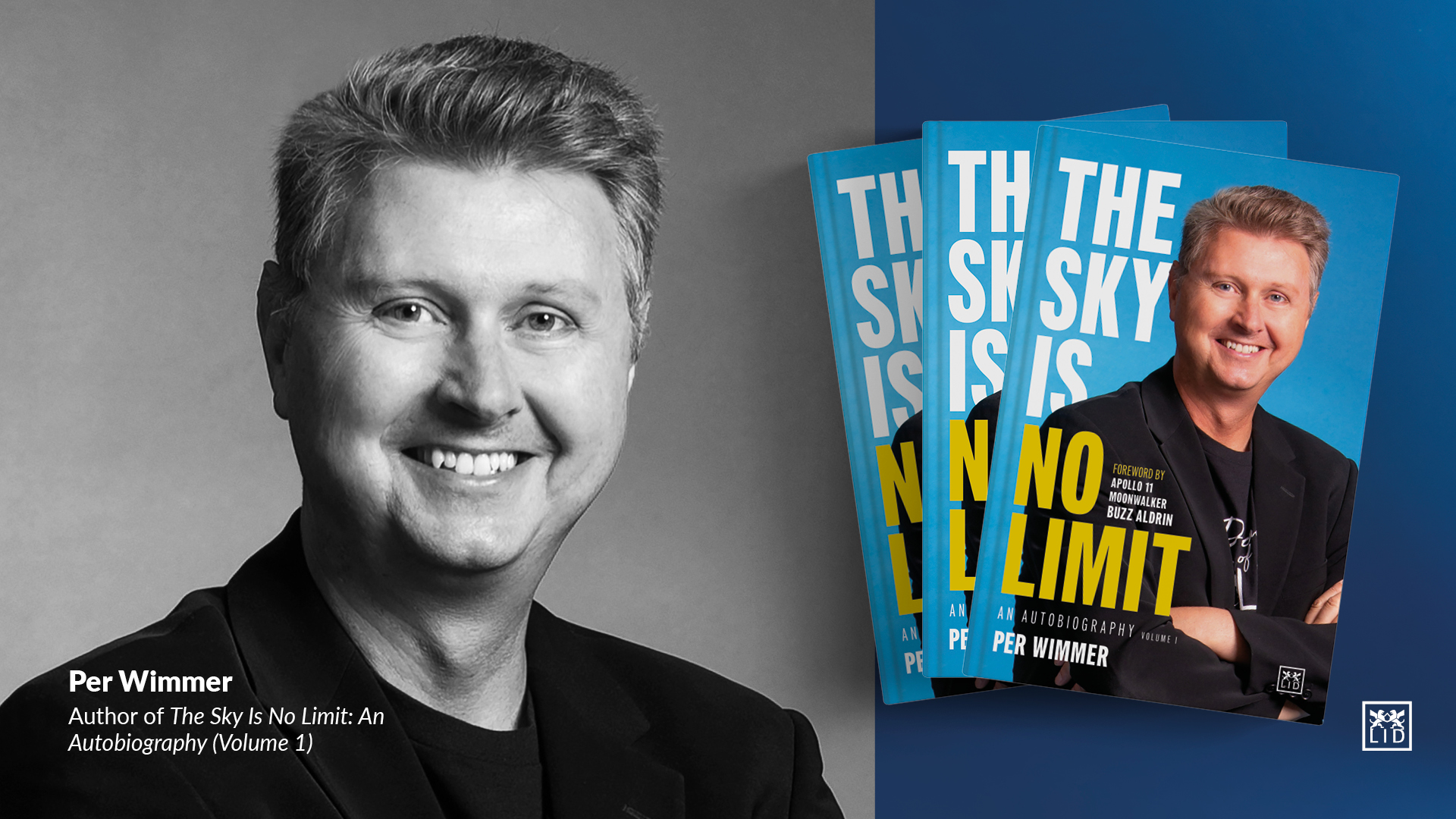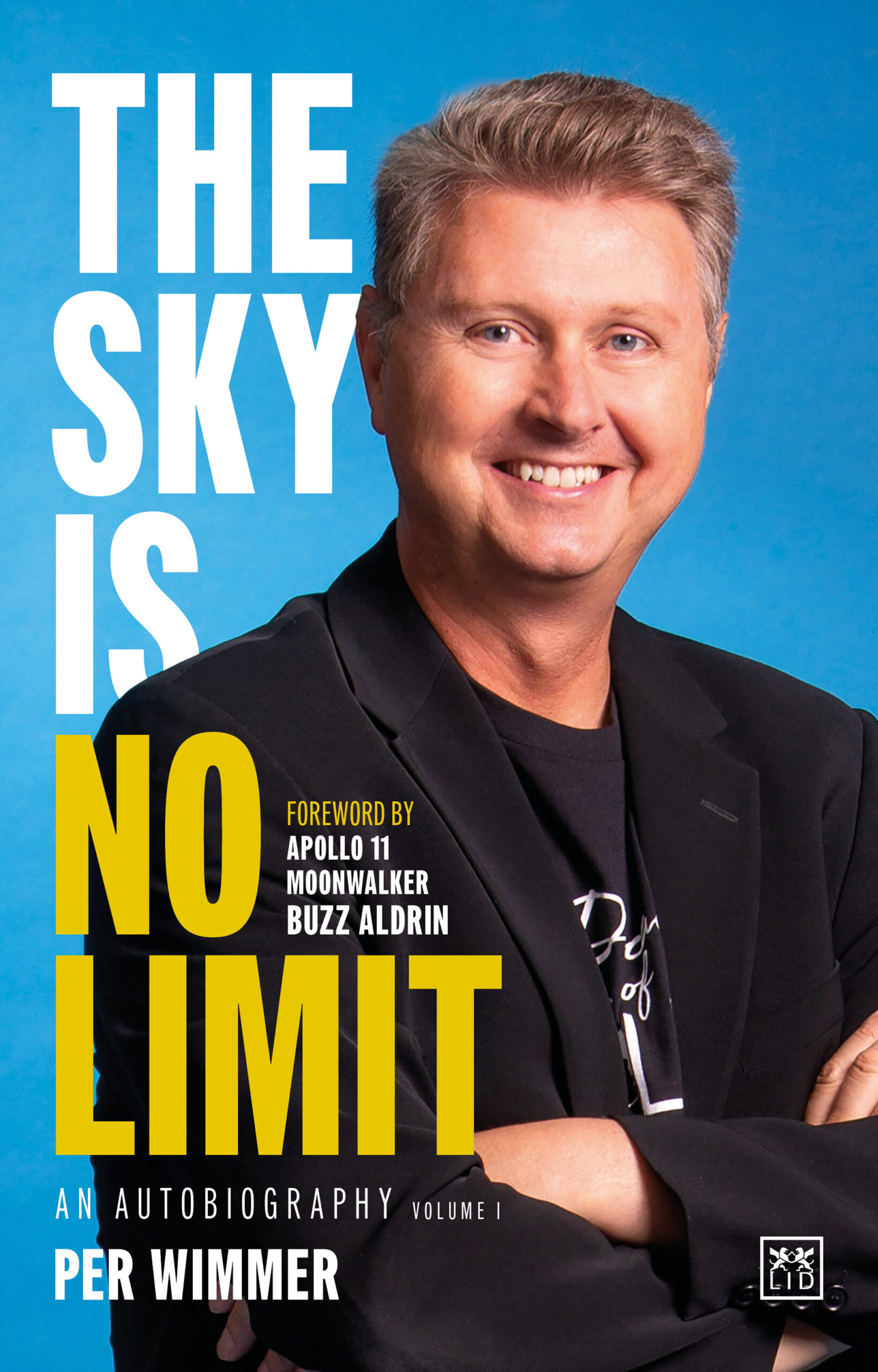|
Why I Am Going to Space with Per Wimmer
Why I Am Going to Space

By Guest Contributor Per Wimmer
Author of The Sky Is No Limit, Per Wimmer, reveals why he’s so passionate about space travel.
I have always been an adventurer. I have visited 84 countries, ridden a Harley Davidson across America and back again, lived with an Indian family in the Amazon rainforest and carried out a world-record-breaking skydive over Mount Everest. I have been diving with sharks in Fiji, flown out to the aircraft carrier USS Nimitz in the Pacific Ocean in a C2 Greyhound Navy plane and been catapulted back off the ship. I was involved in a world landspeed record attempt, driving a modified F104 Starfighter jet in the Black Rock Desert.
I think my ultimate adventure will be my forthcoming trip into space with Richard Branson’s Virgin Galactic.
I bought a ticket to space with Virgin Galactic back in 2004. A brilliant rocket scientist called Burt Rutan had designed a new spacecraft in the hope of winning the Ansari X Prize, a $10 million prize offered for the first reusable commercial spacecraft to fly into space twice within two weeks. Rutan’s company was backed by Paul Allen, the co-founder of Microsoft. The spacecraft was called SpaceShipOne. It had already made one successful flight into space and then, within the specified two-week period, on October 4th, 2004 (the 47th anniversary of the launch of Sputnik I, the world’s first artificial satellite) it made its second successful flight and claimed the prize. On the same day, Sir Richard Branson announced that he was going into business with Rutan to form The Spaceship Company and was launching Virgin Galactic as a new private space venture offering flights into space on the SpaceShipTwo, which The Spaceship Company would build. Soon after the announcement, I bought a ticket, becoming one of Virgin Galactic’s Founding Astronauts.
Funnily enough, at that time I had already bought another ticket to space – with Space Adventures, the first company to offer private flights to space. I carried out some space training with them in Russia in 2001, which included flying near the edge of space in a supersonic MiG-25. I was also invited by them to witness the launch of the Russian Soyuz TM-32 rocket taking the world’s first private astronaut, Space Adventure’s client, the hedge fund billionaire Dennis Tito, to the International Space Station (ISS) in 2001. I stood on the launchpad with Dennis’s family to wave him off as he climbed the stairs to the cockpit of the rocket with the Russian crew – something that would be unthinkable with NASA. We did retire to a safe distance before the actual blast off! A little later, I bought my third ticket to space with a company called XCOR, who were offering flights to space in their new Lynx rocketplane.
Maybe it’s just as well I bought three tickets to space. Space Adventures still offer flights to the ISS and are now offering flights that will orbit the moon, but they dropped their plans for the kind of suborbital flight I had bought a ticket for. XCOR, very sadly, went bust. Not every space venture succeeds, and I was prepared to take that risk. But I still have my ticket with Virgin Galactic.
Commercial flights on the latest incarnation of SpaceShipTwo, VSS Unity, began in August. Of Virgin Galactic’s original 100 Founding Astronauts, only 47 are still involved. Some have dropped out and others, sadly, have died in the nearly two decades that have passed since the company was founded. We all drew lots to determine the order of flight and I drew number 37. I was hoping to get number one! Travelling to space has been a dream of mine for as long as I can remember. Soon it will be a reality: I am likely to fly on the 10th commercial flight of VSS Unity.
The easiest explanation for my passion for space travel is probably the simple fact that I am an adventurer. As an adventurer you always want to push the boundaries and do things and go places few other people have been. To date, only around 600 people have travelled to space, and I want to be one of those lucky few. But there is another reason.
I own and run my own merchant bank, Wimmer Financial. We invest in global real estate, natural resources, infrastructure, aviation and shipping, among other things. I know the power that financial capital has to drive progress and create the things we all want and need in our lives. The private capital that is flowing into space exploration has the same potential. According to the venture capital fund, Space Capital, over $280 billion of private investment have been committed to space-related projects in the past decade. And, as is always the case with this kind of new investment, there are spin-offs and innovations that benefit everyone, not just the lucky few who actually travel into space.
The Ansari X prize that was claimed by SpaceShipOne in 2008 was set up to encourage the development of commercial space travel in exactly the same way that the Orteig Prize led to Charles Lindbergh’s epic 1927 flight from Long Island in America to Paris in France in the Spirit of St Louis, an aircraft specially constructed for the challenge. When Lindbergh landed at Le Bourget airfield near Paris, he was greeted by a huge crowd who carried him head high around the airfield for over half an hour. The whole world got caught up with excitement at the idea that international air travel might now become a reality.
Financiers began to see the potential returns from new aircraft technologies and the development of commercial air travel; money began to flow into the aviation industry. In the same year that Lindbergh made his epic flight, pioneering aircraft manufacturer William Boeing won the bid to carry airmail from Chicago to San Francisco. By the end of the 1920s he was carrying one quarter of all US Airmail and an increasing number of passengers. In 1929, he launched a 12-passenger biplane, the world’s first passenger aircraft. In 1933, the company launched its Model 247, the world’s first modern passenger aircraft. The entrepreneurial spirit of commerce was beginning to drive innovation and to turn the dream of air travel into reality.
Those early days of commercial flight were the province of the rich and famous but, very quickly, air travel became available to all. Businessmen and women could meet trading partners anywhere in the world at the cost of a few days out of their busy schedules. Ordinary working families began to travel to previously unimaginable destinations as tourists. The world opened up to everyone.
The commercialisation of air travel transformed the aviation industry from an intriguing new innovation of great symbolic significance, into something that would transform the world economy and become a part of everyday life for millions of people. I believe that commercial space travel is at exactly the same inflection point and that the private capital flowing into the space economy will benefit us all and change the world in ways we can’t yet imagine.
There is one other reason I want to travel into space. It’s called the ‘overview effect’. When you leave the earth’s atmosphere, you are given a hugely privileged view of our beautiful and fragile planet, floating in space outside your window. As someone whose merchant bank invests in natural resources, including alternative energy sources, I know how unbelievably lucky we are to be able to use the world’s treasures to live comfortable and exciting lives. Seeing the world from space will give me a perspective I will carry for the rest of my life to remind me how precious the planet that provides these resources is.
ABOUT THE AUTHOR
Suggested Reading
 The Sky Is No Limit is the first volume in the autobiography of a person who a commentator described as “a true Indiana Jones meets 007 James Bond”. Per Wimmer’s life story is far from ordinary and very much driven by the desire to push boundaries. This first volume covers Per’s formative years, his growing fascination for adventure, travel and space, and the growth of his career in international finance, culminating in the founding of Wimmer Financial.
The Sky Is No Limit is the first volume in the autobiography of a person who a commentator described as “a true Indiana Jones meets 007 James Bond”. Per Wimmer’s life story is far from ordinary and very much driven by the desire to push boundaries. This first volume covers Per’s formative years, his growing fascination for adventure, travel and space, and the growth of his career in international finance, culminating in the founding of Wimmer Financial.

 Per Wimmer is a global financier who founded investment management companies Wimmer Financial and Wimmer Family Office. Outside of work, he is an astronaut, adventurer and philanthropist. Danish in origin, Per lives mostly in London.
Per Wimmer is a global financier who founded investment management companies Wimmer Financial and Wimmer Family Office. Outside of work, he is an astronaut, adventurer and philanthropist. Danish in origin, Per lives mostly in London.